#LanguageNerd
Explore tagged Tumblr posts
Photo
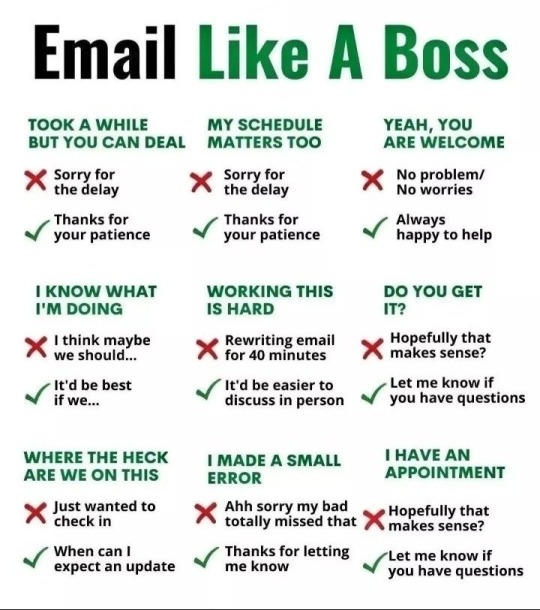
Email like a boss
#LanguageLearning#LearnLanguages#Polyglot#SpeakFluent#LanguageLearner#LanguageGoals#LanguageJourney#LanguageExchange#LearnWithMe#Linguistics#LanguageTips#LanguageNerd#BilingualLife#LanguageChallenge#LanguageStudy#LanguageCommunity#FluentInDays#LanguageTeacher#LearnAndGrow#LanguageAcquisition#LearnersOfInstagram#PolyglotCommunity#LanguageResources#LanguageEnthusiast#LanguageMemes#SpeakLikeANative#LanguagePodcasts#LanguageBooks#LanguageLearningTips#LanguageInspiration
93 notes
·
View notes
Text
Four-panel comic of my moving
I recently moved to Itabashi Ward, so I decided to make a four-panel comic to share my thoughts about it.




There are so many hills that it's hard to pedal a bike.
ママチャリだと移動というよりも筋トレ
#English#EnglishLearning#Literature#Language#LanguageLearning#Reading#Writing#Langblr#Studyblr#StudyTips#LanguageStudy#LitNerd#ReadingCommunity#WritersOfTumblr#WritersCorner#LearnEnglish#EnglishLanguage#EnglishGrammar#LanguageLover#LanguageNerd#ClassicBooks#LiteraryAnalysis#AcademicWriting#StudyMotivation#Lingblr#Linguistic#Linguistics#Linguist#Languages#LearningLanguages
5 notes
·
View notes
Photo

Ever wondered about the difference between "bleiben" and "verbleiben" in German? Let’s break it down! 🇩🇪 Bleiben simply means to stay or to remain. Whether you're staying at home or remaining calm, "bleiben" is the go-to verb. Example: Ich bleibe zu Hause (I'm staying at home). Verbleiben is a bit different. It’s often used in a more formal or abstract context, like agreeing on how to proceed. It can mean something like "to come to an agreement" or "to decide on something". Example: Wie verbleiben wir? (So, what do we agree on?). Think of "bleiben" as staying in one place, while "verbleiben" is more about making a final arrangement or understanding. It's subtle, but it makes a big difference in context! Mastering these little differences is what makes learning German so interesting! 📚💡 Have you used these words in a conversation yet? Share your favorite example in the comments!
#GermanLanguage#LearnGerman#DeutschLernen#bleiben#verbleiben#GermanGrammar#LanguageLearning#Polyglot#LearnLanguages#Deutsch#GermanTips#LanguageNerd#Linguistics#WordsMatter#LanguageLove#StudyGerman
4 notes
·
View notes
Text
🕵️♀️🔤 Wordplay Wednesday: Unraveling the Cryptic Clues 🔎🔤
Welcome to another captivating edition of Wordplay Wednesday! Prepare to embark on a linguistic journey filled with cryptic crossword-style clues and enigmatic word puzzles. 🧩📚
🔍 The Cryptic Clues: In the realm of wordplay, nothing is quite what it seems. Here are today's cryptic crossword-style clues, designed to tickle your brain and challenge your vocabulary. Can you decipher the hidden words or phrases concealed within these cunningly crafted riddles?
"I'm a fruit with a deceptive appearance. Remove my skin and I'm smooth and creamy." (6)
"I'm a place where words find their home. Without me, the world would be silent." (5)
"I'm a group of musical notes follow your every move." (8)
"I'm a written work which is always in motion." (7)
"I'm a tiny stinger with a powerful punch. Handle me with care!" (4)




Engage your inner wordsmith and share your solutions in the comments below. If you're puzzled or have cracked the code, let's discuss and celebrate the magic of language together! 🤝🗣️
Stay tuned for more cryptic delights, linguistic challenges, and mind-bending wordplay. Happy unraveling, word aficionados! 🧙♂️📖🔐
#WordplayWednesday#CrypticClues#WordPuzzles#BrainTeasers#LinguisticProwess#PuzzleFun#DecipherTheCode#UnravelTheMystery#MindFlex#LanguageEnthusiasts#WordWizardry#WednesdayWordplay#TumblrWordGames#WordChallenge#LanguageNerds#CuriousMinds#LanguagePlay#PuzzleSolvers#ThinkOutsideTheBox#WednesdayPuzzle#WordplayEnthusiasts#ChallengeAccepted#TumblrMindGames#PuzzleAdventure#ExploreTheWords#WordPlayful#LanguageMystery#WednesdayRiddles#LinguisticMastery#WednesdayWordSearch
0 notes
Text
As an #AuDHD #Spanishteacher & #languagenerd, this makes my soul happy!
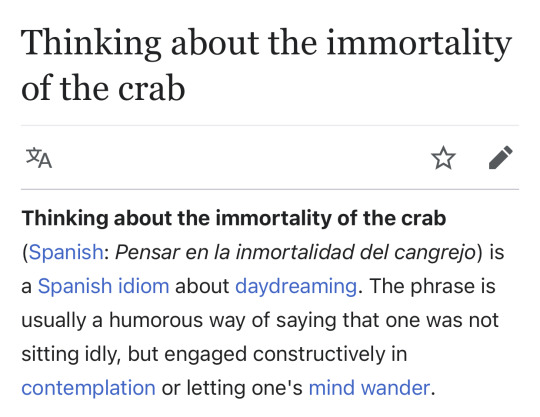
25K notes
·
View notes
Photo
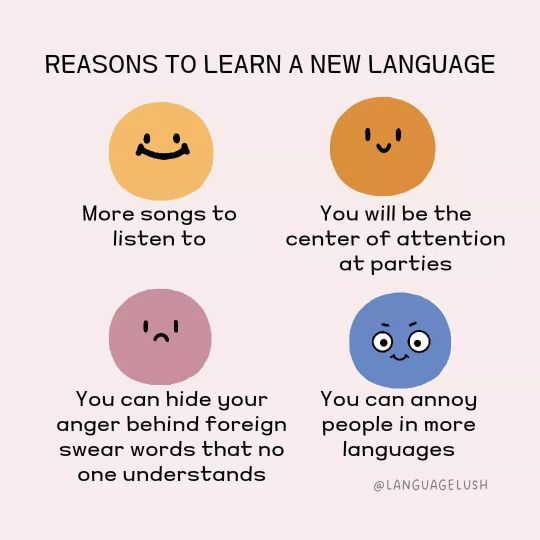
There are so many benefits, don't give up on your language learning 🔥 Make sure to follow: @languagelush . . . 🏷 #languages #languagelearning #learninglanguages #languagestudy #languagelearner #languagelearners #languagenerd #languagelover #languagelearningtips #languagememes #languagecommunity #learnlanguage #polyglotcommunity #languageexchange #languagememe #language #languagestudent #learnlanguages #polyglots #polyglot #polyglotlife #languagegram #languagechallenge #fluency #languagearts #learnlanguagesonline #languageskills #studylanguages #languagetips https://www.instagram.com/p/CaiHefABnit/?utm_medium=tumblr
#languages#languagelearning#learninglanguages#languagestudy#languagelearner#languagelearners#languagenerd#languagelover#languagelearningtips#languagememes#languagecommunity#learnlanguage#polyglotcommunity#languageexchange#languagememe#language#languagestudent#learnlanguages#polyglots#polyglot#polyglotlife#languagegram#languagechallenge#fluency#languagearts#learnlanguagesonline#languageskills#studylanguages#languagetips
3 notes
·
View notes
Link
1 note
·
View note
Text
Anyone speaking/learning Norwegian?
I want to join a free course next semester and I’m wondering if I’m a fool and it’s impossible to learn or if it’s doable. Considering that I’m an Italian who learnt German and Ancient Greek I think I would now he scared only by learning Russian, Finnish or Chinese/Japanese (and probably more languages on the same difficulty level which I am not even aware of) but I really want to learn Norwegian!
Can someone help and share their experience?
Thaaanks
1 note
·
View note
Text
Gimme all them etymologies
"Irish doesn't have a word for please, you have to say if it be your will" buddy do I have news for you about "please"
"Irish doesn't have a word for hello you have to use a shorthand religious blessing" buddy do I have news for you about "goodbye"!
"In Polish the word for car is that which walks by itself" BUDDY what do you think an AUTOMOBILE is?
you have got to understand that your mother tongue is not the model of language. all your words have secret histories and layers of meaning just the same as other people's words. the word you think of as just a word has etymology, it wasn't handed down from God as a finished word. English doesn't have a word for movie you have to either refer to the recording medium or use a short version of "moving picture", isn't that cute?
#languagenerd#languages are so amazing#like did u know the etymology for cocktail#it has its root in horse racing#language is beautiful
60K notes
·
View notes
Photo
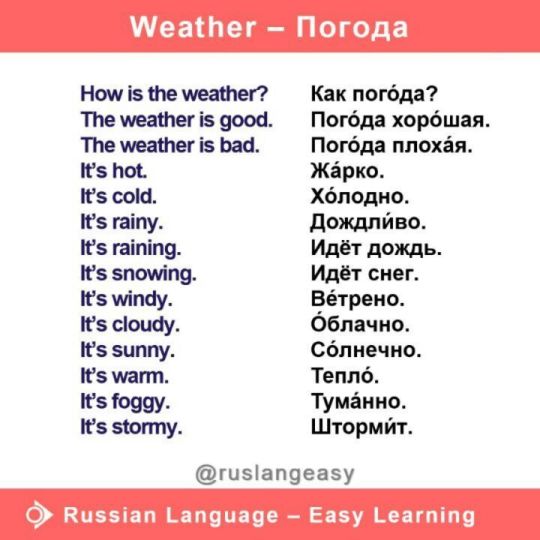
А какая погода у вас? 🙂 #russianlanguage #ruslangeasy #russianlessons #slowrussian #russianforbeginners #russianwords #russianvocabulary #basicrussian #commonrussianwords #speakrussian #russianpronunciation #polyglots #languagelovers #languagenerd #aprenderruso #impararerusso #russisch #russe #russo #ruso #russischlernen #apprendrerusse #learnrussianfree https://www.instagram.com/p/B4xD1vfHAM_/?igshid=1vgibmqmvwv58
#russianlanguage#ruslangeasy#russianlessons#slowrussian#russianforbeginners#russianwords#russianvocabulary#basicrussian#commonrussianwords#speakrussian#russianpronunciation#polyglots#languagelovers#languagenerd#aprenderruso#impararerusso#russisch#russe#russo#ruso#russischlernen#apprendrerusse#learnrussianfree
2 notes
·
View notes
Photo

Recently, while looking at the Irish word for "vegetarian", I recognized the word "feoil" as meaning 'meat', which of course made me curious about the meaning of the second part of the word. I was not disappointed by what I found out.
https://toingaeilge.com/post/165283598853/compound-words
1 note
·
View note
Video
tumblr
Follow!
#shorts#comedy#skit#funny#english#learnenglish#LanguageLearning#LearnLanguages#Polyglot#SpeakFluent#LanguageLearner#LanguageGoals#LanguageJourney#LanguageExchange#LearnWithMe#Linguistics#LanguageTips#LanguageNerd#BilingualLife#LanguageChallenge#LanguageStudy#LanguageCommunity#FluentInDays#LanguageTeacher#LearnAndGrow#LanguageAcquisition#LearnersOfInstagram#PolyglotCommunity#LanguageResources#LanguageEnthusiast
10 notes
·
View notes
Text
Life in Itabashi

I currently live in Itabashi Ward (in Japan).
I chose this area as the 6th out of 23 wards of Tokyo and have been here for two weeks."
My impression of Itabashi is that it feels like a small country because of its vast area.
However, there are many slopes and especially steep ones, making it difficult to get around by city bicycle.
On the other hand, it’s quite nice because shops are spread out rather than concentrated in just one place. I enjoy riding my bicycle to explore different areas and visit various shops.
It has been a fun experience for me.
#English#EnglishLearning#Literature#Language#LanguageLearning#Reading#Writing#Langblr#Studyblr#StudyTips#LanguageStudy#LitNerd#ReadingCommunity#WritersOfTumblr#WritersCorner#LearnEnglish#EnglishLanguage#EnglishGrammar#LanguageLover#LanguageNerd#ClassicBooks#LiteraryAnalysis#AcademicWriting#StudyMotivation#Lingblr#Linguistic#Linguistics#Linguist#Languages#LearningLanguages
1 note
·
View note
Photo

⚖️ Test Your German with Our Legal Vocabulary Quiz! 🇩🇪 Interested in law and learning German? Take our informative quiz focused on essential legal terms! Practice translating words, learning the correct articles, and mastering the plural forms. Perfect for anyone looking to improve their German vocabulary in the legal field. Quiz Highlights: Die Anklage (accusation) Die Berufung (appeal) Der Freispruch (acquittal) Die Haft (custody) Die Kaution (bail) Das Recht (law) Das Rechtsmittel (legal remedy) Der Schuldspruch (conviction) Der Strafprozess (criminal trial) Der Verteidiger (defense attorney) Each word is selected to help you understand legal discussions with confidence. Whether you're a law student, a professional, or just curious about legal terminology, this quiz is perfect for you! ✨ Why Take This Quiz? Interactive Learning: Engage with words and phrases actively. Comprehensive Coverage: Practice translation, articles, and plural forms. Law Focused: Learn vocabulary that will be useful in legal contexts. 📚 Ready to get started? Take the quiz now and see how well you know your legal vocabulary! 🌟
#LearnGerman#GermanLanguage#LanguageLearning#LegalGerman#GermanVocabulary#StudyTips#LanguageStudy#GermanPractice#Polyglot#LanguageNerd#LanguageGoals#LearnLanguages#GermanTeacher#Deutschlernen#Deutsch#LanguageInspiration#LanguageJourney#FluentGerman#LanguageSkills#GermanWords#LanguageLove#LegalVocabulary#GermanQuiz#InteractiveLearning
0 notes
Text
Yesterday's Wednesday
🔍 Unravel the Cryptic Clues: Wordplay Wednesday is Here! 🧩📚
Welcome, wordsmiths and puzzle enthusiasts! It's that time of the week when we embark on a linguistic adventure filled with cryptic crossword-style clues, anagrams, and mind-bending wordplay. Welcome to Wordplay Wednesday! 🕵️♀️🔤
🧩 The Cryptic Clues: Here's your chance to put your word-sleuthing skills to the test. We've prepared a collection of cryptic crossword-style clues which are as challenging as they are creative. These clues are like linguistic puzzles, each containing a hidden message or meaning. Your mission? To decipher them.
"Hot, but not warm. Cool, but not cold. What am I?" (6 letters)
"I'm a word of letters three, add two, and fewer there will be." (5 letters)
"I'm where yesterday follows today and tomorrow's in the middle. What am I?" (5 letters)
"I'm a vessel of knowledge, but my contents are never read. What am I?" (8 letters)
"You can hold me in your hand, but I'm never thrown. What am I?" (7 letters)
🕵️♂️ Engage Your Inner Sleuth: Unraveling these cryptic clues requires a keen mind, a love for language, and a knack for wordplay. It's like solving a puzzle where words are the pieces, and the solution is hidden within the riddle itself. Get ready to don your detective hat!
📚 The Joy of Language: Wordplay is a celebration of the richness and versatility of language. It encourages us to explore words from new angles, appreciate linguistic nuances, and uncover hidden meanings. It's a journey through the labyrinth of words where every clue is a revelation waiting to happen.
🤔 Share Your Word Wizardry: Once you've cracked the codes or encountered intriguing wordplay challenges, share your discoveries in the comments below. Engage with fellow Tumblr word enthusiasts, exchange insights, and celebrate the brilliance of language in all its forms.
🧙♂️ Wordplay Wednesday Continues: Stay tuned for more Wordplay Wednesdays filled with fascinating cryptic clues, anagrams, and word puzzles from diverse fields. Challenge yourself, learn something new, and let's celebrate the magic of language and wordplay together.
Happy unraveling, Tumblr word wizards! 🧙♀️🎩
#WordplayWednesday#CrypticClues#WordPuzzles#BrainTeasers#LinguisticProwess#PuzzleFun#DecipherTheCode#UnravelTheMystery#MindFlex#LanguageEnthusiasts#WordWizardry#WednesdayWordplay#TumblrWordGames#WordChallenge#LanguageNerds#CuriousMinds#LanguagePlay#PuzzleSolvers#ThinkOutsideTheBox#WednesdayPuzzle#WordplayEnthusiasts#ChallengeAccepted#TumblrMindGames#PuzzleAdventure#ExploreTheWords#WordPlayful#LanguageMystery#WednesdayRiddles#LinguisticMastery#WednesdayWordSearch
0 notes
Photo
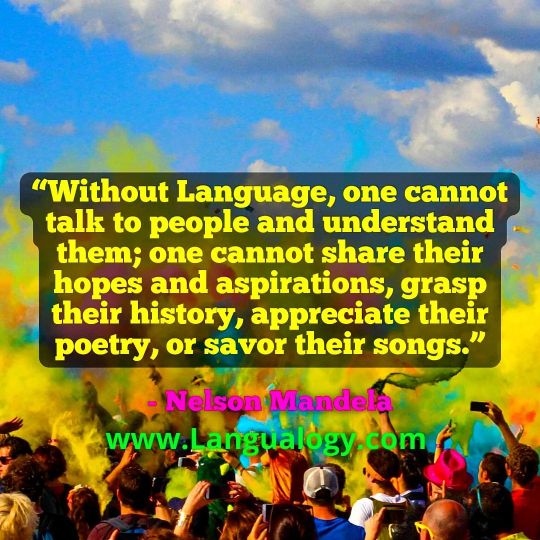
Without Language, one cannot talk to people and understand them; one cannot share their hopes and aspirations, grasp their history, appreciate their poetry, or savor their songs. - Nelson Mandela . . . . . #idiomas #languages #languagelearning #learnlanguages #learninglanguages #languagelover #learninglanguages #languagelearner #learnlanguage #languagestudent #languagelovers #targetlanguage #languagenerd #languagelearners #passionforlanguages #languagemotivation #langualogy #quotes #quote #quotestagram #quotesdaily #quotesoftheday #quotestags #quotesgram #quotesofinstagram #quoteslover #quotesinstagram #languagequote #languagequotes #language https://www.instagram.com/p/Cc-6WcBJT4Q/?igshid=NGJjMDIxMWI=
#idiomas#languages#languagelearning#learnlanguages#learninglanguages#languagelover#languagelearner#learnlanguage#languagestudent#languagelovers#targetlanguage#languagenerd#languagelearners#passionforlanguages#languagemotivation#langualogy#quotes#quote#quotestagram#quotesdaily#quotesoftheday#quotestags#quotesgram#quotesofinstagram#quoteslover#quotesinstagram#languagequote#languagequotes#language
0 notes